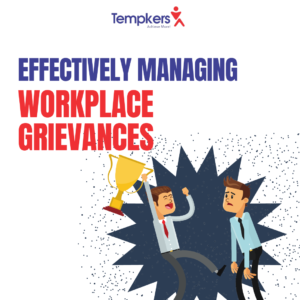
Making Critical Manpower Decisions
One critical decision every HR professional is faced with is ensuring that the manpower needs of a company is met. This means that we have

Most times your reasons to quit may seems good enough for you either because you dislike your job. But that doesn’t mean you should quit.
They may be other factor to consider if only you chose not to make a hasty decision of quitting.
The key of been financially able to manage yourself after quitting can only be answered by you. “Ask yourself, ‘If I quit my job without a new one to go to, how can I budget for a six- or even 12-month safety net? What expenses can I cut temporarily knowing I can get them back once I have a new job and also how long would I be able to sustain myself before I get a new job?”
If your answer to the “Should I quit my job?” is YES, then it’s time to figure the best time to resign from work! Will you stick it out until you find another job? Will you draw an imaginary line in the sand, vowing to quit the minute your boss crosses it? Will you ask for a raise and resign if your request is denied?
Try to distinguish between the realities of your job, and your perceptions and emotions about it It’s difficult working in a job for which you are clearly overqualified, but are there sufficient opportunities available to you right now to find a position for which you are better suited? Before quitting your job, you need to consider the consequences.
Building up experience can take little time be patience enough to build experience so you can effectively market yourself for another role? You may need to stay a little longer so you can build that credibility and really hone those skills. That way, you’ll have a better shot of getting that job you really want.
If being “overworked” is part of the workplace culture at your job, then it could be time to quit, especially if it’s negatively affecting your mental health and you’ve tried to make changes and you still feel burned out at work. Just make sure you ask about workplace culture in your future job interviews, so you don’t accept a job offer at another company with the same overworking atmosphere.
This indeed is a great deal to consider, typically, it takes a few months to train and get comfortable in a position. However, most people aren’t just automatically great at their jobs. They need to take some time to learn their new skills and really provide value to the company before they can market those new skills toward another job so therefore before considering if you would quit your job always think of your level of experience that should help you get another job.
The workplace has seen a flurry of changes in recent years — from an influx of remote workers to the exile of cubicles in favor of open spaces. But one thing hasn’t changed: the importance of Professional etiquette.
Professional etiquette is a set of rules that guide how people behave in the workplace. Why is this important? Beyond the obvious reason — you want people to like you having good manners helps put those around you at ease, which leads to better working relationships.

One critical decision every HR professional is faced with is ensuring that the manpower needs of a company is met. This means that we have

What is Hazard pay? This is a payment that is made in addition to a worker’s regular salary as a bonus for accepting a job

Have you ever driven your car on 2,3 or 4 flat tires for 10 kilometres ? How did it feel? What was the impact of

Your ability to effectively manage Grievance, can make you a star In a workplace grievances must happen, your ability to effectively manage them makes you

Every CEO desires to have a dream team. People who would come together and give their best to running and growing the business. Most times

In this HR series, we will be discussing FORECASTING How many eyes do you have? Many years ago as children, we were playing hide and
WhatsApp us